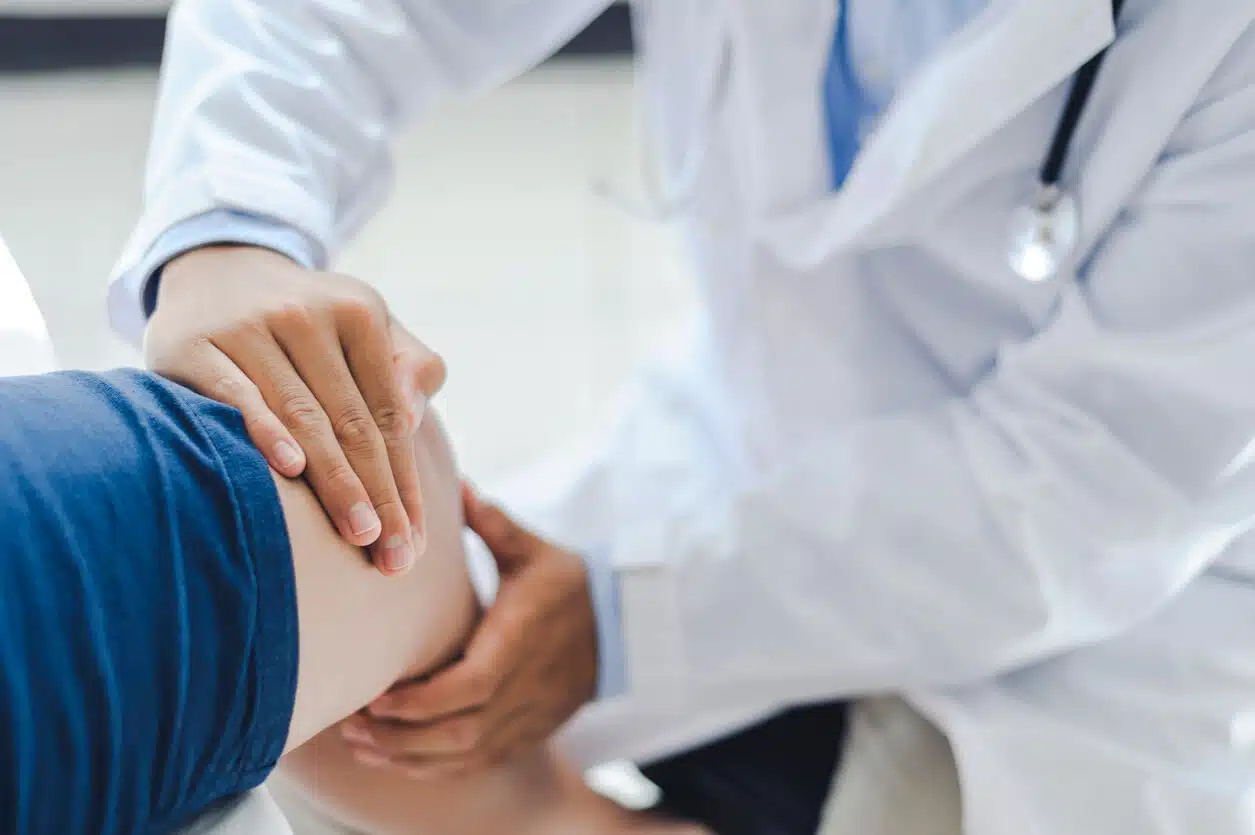
Participating in sports and physical activities offers numerous benefits. While sports can make you happy and fulfilled, you need to be aware of the risks that come with them.
Athletes should know how to recognize the early signs of a sports injury. If you are a recreational athlete or weekend warrior, you could experience an injury and can benefit from injury prevention. In this article, we are going to discuss some of the most common sports injuries, their early signs, and how to prevent them.
Recognizing Common Sports Injuries
Below are just some of the most common sports-related injuries that doctors treat:
Knee Injuries
- Anterior Cruciate Ligament (ACL) Tear: Commonly seen in sports involving sudden stops, changes in direction, or jumping, such as basketball and soccer.
- Meniscus Tear: Occurs due to twisting or direct impact on the knee, often seen in sports like football and basketball.
- Patellofemoral Pain Syndrome (Runner’s Knee): Primarily affects runners and other athletes involved in repetitive knee bending activities.
Foot and Ankle Injuries
- Ankle Sprain: Resulting from sudden twisting or rolling of the ankle, frequently seen in sports like soccer and volleyball.
- Achilles Tendonitis: Overuse injury affecting the Achilles tendon, often encountered in running and basketball.
- Plantar Fasciitis: Common in activities involving repetitive impact, such as running and basketball.
Shoulder Injuries
- Rotator Cuff Tear: Often caused by repetitive overhead movements, prevalent in sports like baseball and tennis.
- Shoulder Dislocation: Occurs when the humerus bone is forced out of the shoulder socket, commonly seen in contact sports like football and rugby.
- Shoulder Impingement Syndrome: Results from the compression of tendons and bursa in the shoulder joint, frequently seen in sports like swimming and baseball.
Recognizing the Signs of a Sports Injury
Here are the telltale signs of a sports injury:
- Pain or discomfort in the affected area
- Swelling and inflammation
- Limited range of motion or difficulty moving the injured body part
- Bruising or discoloration
- Tenderness to touch
- A feeling of your joint giving way
- Hearing a popping at the time of injury
- Difficulty bearing weight on the injured limb
- Loss of strength or muscle function
- Changes in posture or movement patterns
Preventing Common Sports Injuries
While some sports injuries are unavoidable, there are steps you can take to reduce the risk:
Warm-Up and Stretch
Always begin with a proper warm-up session to increase blood flow and prepare the muscles for activity. Follow this with dynamic stretching to improve flexibility and range of motion.
Use Proper Equipment
Wear appropriate protective gear, such as pads and supportive footwear. Make sure equipment fits well and is in good condition.
Train and Condition
Gradually increase the intensity and duration of training to allow the body to adapt. Incorporate strength and conditioning exercises specific to your sport to build up muscles and improve overall stability.
Practice Proper Technique
Learn and practice correct form and technique for your sport. This will not only enhance performance but also reduce the risk of injury.
Listen to Your Body
Pay attention to any pain or discomfort during physical activity. Rest when needed, and do not push through pain, as it may be a sign of an underlying injury.
Stay Hydrated
Proper hydration is crucial for maintaining muscle health and to prevent injuries. Make sure to hydrate before, during, and after a game or training session.
Take Rest Days
Allow your body time to recover and repair. In addition to cross training, also include rest days to prevent overtraining and fatigue, which can lead to injuries.
Seek Professional Guidance
If you are new to a sport or unsure about proper technique, consider working with a sports medicine doctor who can provide you with specialized care and guidance. Sports medicine doctors can help enhance your athletic performance through guidance.
Sports Injury Treatment in North Dakota
For the treatment and prevention of sports injuries, choose the orthopedic doctors at The Bone & Joint Center. Our orthopedic surgeons have advanced training in sports medicine and can help you participate in sports and other athletic activities in a safe manner.
Our sports medicine doctors listen to your goals and guide you on how to achieve them. We are proud of the high-quality services we provide to athletes and recreational players throughout North Dakota.
For more information about our sports medicine services or to schedule an appointment with a top sports medicine doctor, call our office today at (701) 946-7400 / (866) 900-8650 or use our convenient online form. Our friendly staff awaits your call.

